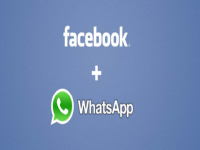Filed by the Washington, D.C.-based Electronic Privacy Information Center and the Center for Digital Democracy, the "unfair and deceptive practices" complaint states that WhatsApp's privacy policy is incompatible with Facebook's. They request that the FTC "halt Facebook's proposed acquisition of WhatsApp" until the issues listed in the complaint are "adequately resolved."
The complaint also argues that the proposed merger violates the consent decree issued by the FTC in 2011.
In the complaint, the two organizations argue that Facebook has a history of violating users' privacy by changing the company's privacy policies; that many WhatsApp users are opposed to the merger; and that Facebook's policies toward privacy are incompatible with WhatsApp's "pro-privacy" stance.
EPIC stated on its Web site, "Our complaint urges the FTC to investigate whether there are sufficient privacy protections in place to continue to shield the data of WhatsApp users from access by Facebook -- which (for many users) was the very feature that made WhatsApp so appealing in the first place."
Facebook responded with an e-mailed statement that said, "As we have said repeatedly, Whatsapp will operate as a separate company and will honor its commitments to privacy and security."
The FTC did not respond to a request for comment.
It's worth noting that until the FTC decides to respond, the complaint carries little legal weight. There has been no indication of how the FTC intends to respond at this point.
Historically, EPIC complaints to the FTC have not gone unheard, although there is much debate about the FTC's effectiveness in regulating privacy. In addition to the aforementioned consent decree that Facebook must operate under, the FTC has taken action against Google Buzz, Facebook's privacy settings changes, and Microsoft Passport. The FTC approved Google's purchase of DoubleClick despite an EPIC complaint, however.

